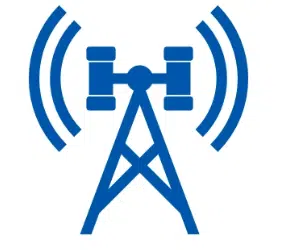A colocation agreement in cell tower leasing refers to an arrangement in which multiple wireless carriers or telecommunications companies share the same cell tower or wireless infrastructure to install their equipment and antennas. This practice is also commonly known as colocation, co-location, or cell site sharing. Colocation agreements are a common strategy for optimizing the use of existing cell tower infrastructure, reducing the need for additional tower construction, and improving network coverage and capacity.
Here are some key aspects of colocation agreements in cell tower leasing:
- Shared Use of Infrastructure: In a colocation agreement, multiple carriers or wireless service providers share the same physical cell tower structure or rooftop location. Each carrier installs its antennas, transmitters, and other equipment on the tower or at the site.
- Space and Equipment Rental: The property owner or tower operator, who owns or manages the cell tower or site, rents out space and infrastructure to multiple tenants (carriers). Each tenant pays rent for their designated space and access to the tower or site.
- Cost Sharing: Colocation allows carriers to share the costs associated with tower construction, maintenance, and site operation. This cost-sharing can be more cost-effective than building separate towers for each carrier.
- Improved Network Capacity: By colocating on the same tower or site, carriers can improve their network capacity and coverage, which benefits both carriers and consumers by reducing dropped calls and enhancing data speeds.
- Efficiency and Aesthetics: Colocation minimizes the need for additional towers, which can be visually unappealing and raise concerns in communities. It is often more efficient and aesthetically pleasing to have multiple carriers share a single tower or site.
- Lease Agreements: Each carrier entering into a colocation agreement with the property owner or tower operator will have its lease agreement specifying the terms, conditions, rent, and responsibilities associated with their use of the tower or site.
- Technical Compatibility: Colocating carriers must ensure that their equipment is technically compatible and that interference between their respective equipment is minimized. This may require coordination and adherence to technical standards.
- Access and Maintenance: Colocation agreements typically outline access rights, responsibilities for maintenance and repairs, and procedures for coordinating work on the tower or site.
Colocation agreements benefit both property owners and wireless carriers. Property owners generate additional rental income by accommodating multiple carriers, while carriers gain cost efficiencies and better network coverage. These agreements are subject to negotiation and should be carefully structured to address the specific needs and requirements of all parties involved. Legal and technical experts often play key roles in drafting and implementing colocation agreements to ensure smooth and compliant operations on shared infrastructure.
